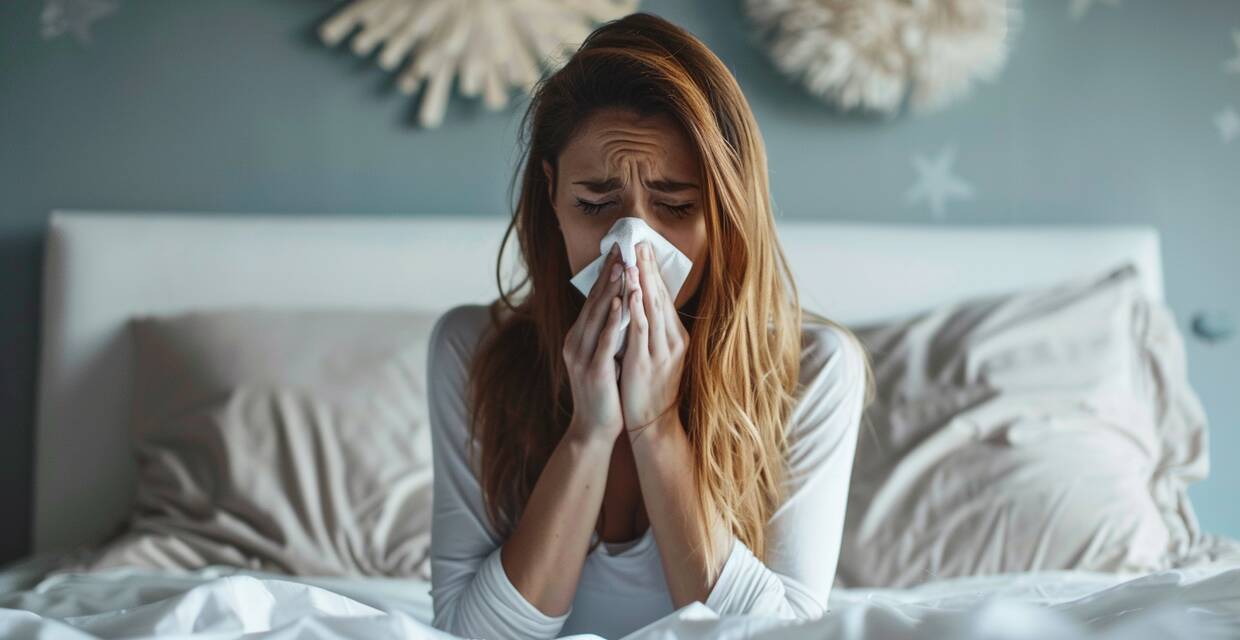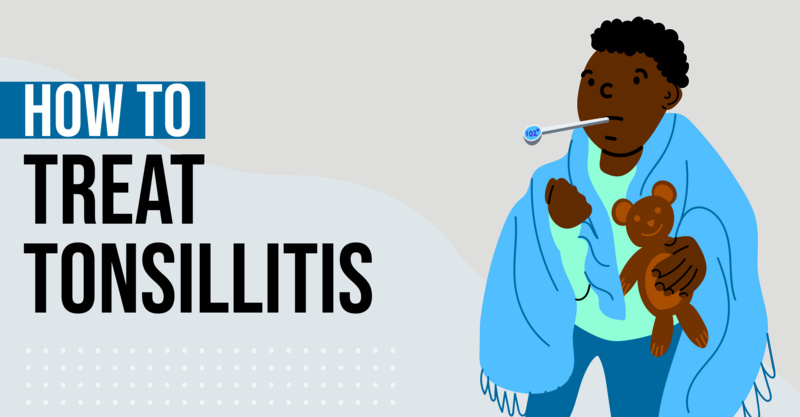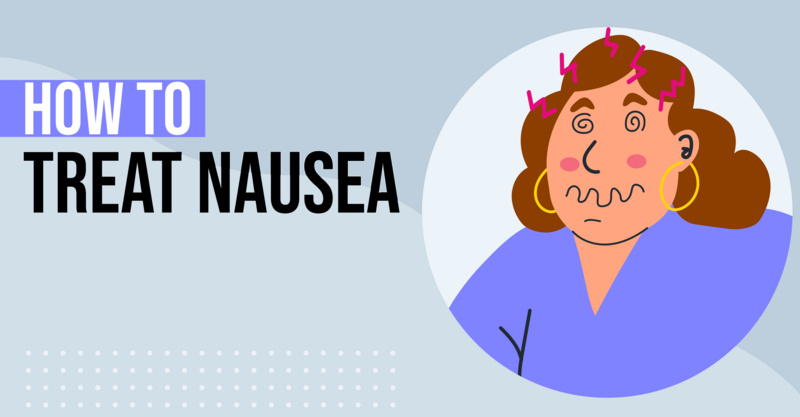Key Points
- The article discusses why allergy symptoms, especially those related to environmental factors, often worsen at night due to our body's circadian rhythm, increased pollen counts, and exposure to indoor allergens.
- Common symptoms of environmental allergies include sneezing, runny nose, itchy eyes, fatigue, coughing, and impaired sense of smell or taste, among others.
- Nighttime allergies can be triggered by dust mites, pet dander, pollen, mold, and cockroach droppings.
- To alleviate nighttime allergy symptoms, the article recommends adjusting sleeping positions, using allergen-proof covers, washing bedding in hot water, showering before bed, using air conditioning or air filters, and cleaning pets regularly.
- The article suggests that persistent or severe nighttime allergies that disrupt sleep or daily life should be addressed with a healthcare provider, and that antihistamines, nasal sprays, eye drops, inhaling steam, home remedies, and allergy shots can help relieve symptoms.
If you’re like most allergy sufferers, you might feel that your symptoms seem to get worse at night. Well, you’d be right — and there are several reasons for this phenomenon!
Allergies (also called allergic rhinitis) do in fact get worse at night, for a number of reasons — especially for people who have environmental allergies (known as hay fever). According to Health.com, here are some of the common reasons:
-
Your circadian rhythm - Our natural circadian rhythms can play a role in exacerbating allergies at night, according to Health.com. They note that the body's immune response tends to be more active in the late afternoon and evening, which can lead to increased allergy symptoms during these times.
-
Increased pollen - Nocturnal pollen counts tend to be higher, as plants release their pollen in the early morning or late evening, making it more likely for allergy sufferers to experience symptoms at night.
-
Pet danger & dust mites in your bedroom - Dust mites and pet dander can be more concentrated in indoor spaces at night, especially in bedrooms where people spend a significant amount of time. Lying down to sleep in allergens that have accumulated on bedding and pillows, leads to increased exposure and worsening of allergy symptoms.
Continue reading to learn more about what you can do to reduce your nighttime allergy symptoms.
Common allergy Symptoms
Common symptoms of environmental allergies, according to the Asthma and Allergy Foundation of America, include:
-
Sneezing
-
Runny or stuffy nose
-
Itchy throat or ears
-
Postnasal drip
-
Fatigue
-
Wheezing (more common in people with asthma)
-
Headache
-
Dark circles under the eyes (known as allergic shiners)
-
Impaired sense of smell or taste
Sometimes, allergy symptoms are similar to symptoms of a head cold. The best way to tell the difference is to check if you have a fever or body aches, and if you have been exposed to anyone who knows they're sick. Additionally, cold symptoms will get better after a few days, whereas allergy symptoms will usually continue for several days, weeks, or months depending on what you are allergic to.
What Causes Night Allergies?
Night allergies can be caused by a variety of allergens that tend to be more concentrated or active during nighttime hours, according to the Carolina Allergy and Asthma Center. They report that dust mites (microscopic insects that thrive in warm and humid environments) are a common trigger for nighttime allergies. Their presence in bedding, pillows, and mattresses can lead to increased exposure when lying down to sleep. Similarly, pet dander, consisting of tiny flecks of skin shed by cats, dogs, and other animals, can accumulate in indoor spaces, especially bedrooms, and worsen allergy symptoms at night.
Additionally, the Carolina Allergy and Asthma Center explains that pollen allergies can also contribute to nighttime allergies, as certain plants release their pollen in the early morning or late evening, leading to higher nocturnal pollen counts
Mold, which thrives in damp and poorly ventilated areas, can exacerbate allergies at night when its spores become airborne, according to the Carolina Allergy and Asthma Center. They also note that cockroach droppings (a common indoor allergen) can trigger allergic reactions, particularly in urban areas, and may worsen symptoms during the night when people are indoors and near these allergens. Understanding your specific triggers for nighttime allergies is important for managing your symptoms.
How Do You Minimize Nighttime Allergies?
Health.com recommends the following tips for minimizing your nighttime allergy symptoms:
-
Adjust your sleeping position to keep your airways clear
-
Use allergen-proof covers on your mattress and pillows
-
Wash your bedding weekly in hot water
-
Shower before getting into bed to remove pollen from your body and hair
-
Use central air conditioning or an air filter to reduce indoor allergens
-
Wipe off or bathe your pets regularly to reduce pet dander
What can help relieve nighttime allergies?
To quickly relieve allergy symptoms, you can consider the following tips from Healthline:
-
Antihistamines such as loratadine, cetirizine, or fexofenadine can help alleviate symptoms like sneezing, runny nose, and itchy eyes.
-
Over-the-counter nasal sprays, such as corticosteroid sprays or saline sprays, can help reduce nasal congestion and inflammation.
-
Antihistamine eye drops can provide fast relief for itchy, watery eyes caused by allergies.
-
Inhaling steam from a bowl of hot water or taking a hot shower can help clear nasal passages and ease congestion.
-
Trying home remedies like local honey, probiotics, and vitamin C can help relieve your allergy symptoms.
- Talking to your doctor about getting allergy shots.
How Do Allergies Impact Your Sleep?
Allergies can significantly impact your sleep by causing symptoms that make it hard to fall or stay asleep, according to Health.com. Additionally, allergies can exacerbate conditions like asthma, further disrupting sleep patterns. This can all lead to fatigue during the day and reduced overall well-being. Addressing and managing allergies is crucial for improving sleep quality and overall health.
When Should I See My Healthcare Provider?
Health.com recommends that you consult your healthcare provider if you experience persistent or severe nighttime allergies that significantly disrupt your sleep, impact your daily functioning, or if over-the-counter remedies have been ineffective.
Additionally, if you have underlying conditions such as asthma that are exacerbated by nighttime allergies, seeking medical advice is important for proper management and relief.
For a medical emergency, such as severe allergy symptoms that make it difficult to breath, dial 911 or visit your closest emergency room immediately.
Frequently asked questions
Why do my allergies get worse at night?
Allergies may worsen at night due to a combination of factors, including:
- Our natural circadian rhythms naturally increase the body’s immune response in the late afternoon and evening
- Nocturnal pollen counts tend to be higher, as plants release their pollen in the early morning or late evening
How can I make my allergies better at night?
To alleviate nighttime allergies, Health.com recommends the following:
- Consider using allergen-proof bedding covers to protect against dust mites.
- Regularly washing bedding, including sheets, pillowcases, and blankets, in hot water.
- Keeping indoor humidity levels low, ideally between 30-50%, to inhibit the growth of dust mites and mold.
- Reducing exposure to pet dander by keeping pets out of the bedroom and regularly grooming and bathing
- Using a high-efficiency particulate air (HEPA) filter in the bedroom
- Consider the use of nasal irrigation or over-the-counter antihistamines can help to alleviate allergy symptoms at night
Why are my allergies worse in my bedroom?
Allergies can be worse in the bedroom due to the accumulation of various allergens in this indoor space. Dust mites (which are a common trigger for allergies) and pet danger thrive in bedding, pillows, and mattresses, leading to increased exposure when spending time in the bedroom. Additionally, poor ventilation and high humidity in bedrooms can create an ideal environment for mold growth.
Is mold worse at night?
Mold levels can vary depending on factors such as humidity, temperature, and air circulation rather than being specifically worse at night, according to Health.com. However, mold spores can become airborne when disturbed, and nighttime activities such as turning over in bed or adjusting bedding can potentially release these spores, leading to increased exposure during the night.
Additionally, poor ventilation and higher humidity levels in indoor spaces at night may create an environment conducive to mold growth and the release of spores. While mold levels may not inherently be worse at night, taking measures to reduce mold growth and limit exposure to mold spores, such as using dehumidifiers, improving ventilation, and promptly addressing any water leaks or moisture issues, can help alleviate allergy symptoms related to mold.
Solv has strict sourcing guidelines and relies on peer-reviewed studies, academic research institutions, and medical associations. We avoid using tertiary references.


 LinkedIn
LinkedIn









